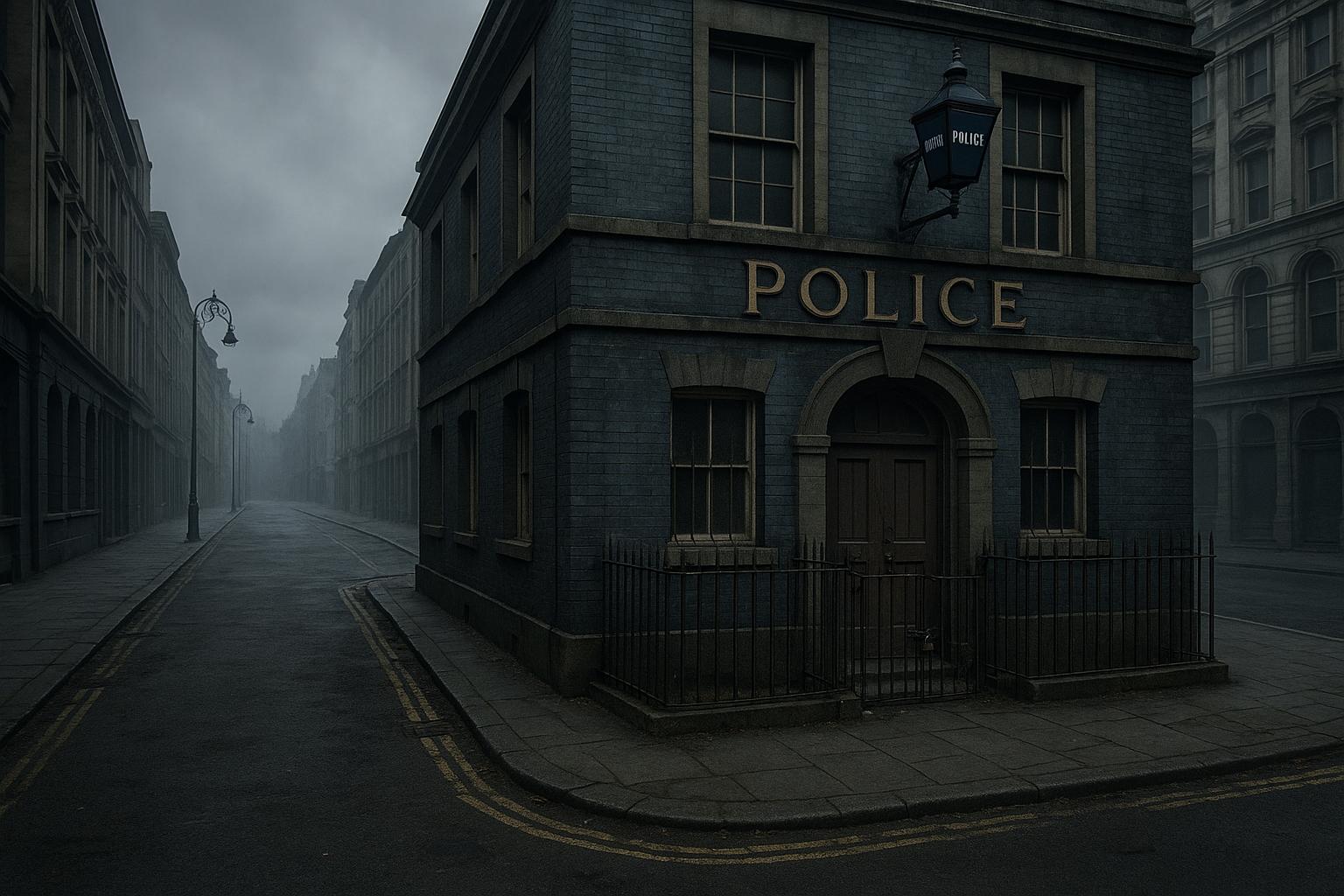The decision to keep Ilford and Romford police stations partially open is criticised as a superficial measure that fails to address the growing underfunding and rising crime rates across London, risking further erosion of community safety and trust.
The Metropolitan Police's decision to keep Ilford and Romford police stations partially open is a sham attempt to placate public concerns while still implementing significant cuts that will weaken local policing. Instead of fully supporting community safety, this ersatz compromise merely prolongs the inevitable decline of accessible police services, leaving residents with reduced hours and diminished confidence in law enforcement’s ability to respond effectively.
Currently, only Lewisham and Charing Cross maintain 24-hour front desks, a stark reminder that big city centres are being sacrificed while authorities scramble to mask the true scale of their funding crisis. The £260 million shortfall faced by the Met exposes their inability to deliver the policing services London needs and deserves. Efforts to reallocate resources within a constrained budget are less about safeguarding community safety and more about window dressing—an attempt to appear responsive without addressing the root causes of underfunding and neglect.
Their so-called "adjustments," which include limiting hours and reducing staff, are nothing more than cost-cutting measures disguised as strategic improvements. Saving £7 million and reallocating nearly 3,000 man-hours sounds impressive on paper, but in reality, it translates into fewer officers available to protect the streets and less accessible stations for the public. It’s an open secret that crime is rising, yet instead of investing in visible policing, the force is retreating, relying increasingly on online reports and remote communication—an approach that undermines community trust and safety.
Criticism from local representatives underscores the true stance of those in charge: the notion that Romford, a vibrant and crucial urban hub, should be treated like a quaint village is both dismissive and dangerous. Conservative councillors and residents rightly fear that these reductions amount to a turning away from their communities, risking greater disorder at a time when law and order should be a priority. The idea that a town like Romford should operate with less access to police support is a direct challenge to public safety and community resilience.
Meanwhile, the anemic gesture of maintaining a handful of front counters across London does little to hide the reality: the police are being starved of resources and are increasingly unable to uphold the safety standards that Londoners expect. This half-hearted approach is yet another manifestation of a policing system broken by mismanagement, political shortsightedness, and a refusal to prioritize the safety of ordinary citizens. It’s clear that without significant investment and genuine reform, the safety of London’s communities hangs in the balance—a point lost on those in charge who continue to cut corners under the guise of austerity.
Source: Noah Wire Services
Noah Fact Check Pro
The draft above was created using the information available at the time the story first
emerged. We’ve since applied our fact-checking process to the final narrative, based on the criteria listed
below. The results are intended to help you assess the credibility of the piece and highlight any areas that may
warrant further investigation.
Freshness check
Score:
8
Notes:
The narrative was published on 17 October 2025, aligning with the Metropolitan Police's announcement on the same date regarding the reduction of operating hours for Ilford and Romford police stations. The earliest known publication date of similar content is 15 October 2025, when the Metropolitan Police announced progress in closing a £260 million funding gap, which included plans to reduce front counter services. ([news.met.police.uk](https://news.met.police.uk/news/met-police-progress-in-closing-ps260m-funding-gap-502211?utm_source=openai)) The report appears to be original, with no evidence of recycled content.
Quotes check
Score:
9
Notes:
The narrative includes a direct quote from Assistant Commissioner Matt Twist: 'The Met is having to shrink to live within its means and as the public would expect, we are targeting our resources on a narrower set of their priorities to make London safer.' This quote matches the one found in the Metropolitan Police's official announcement on 15 October 2025. ([news.met.police.uk](https://news.met.police.uk/news/met-police-progress-in-closing-ps260m-funding-gap-502211?utm_source=openai)) No variations or discrepancies in the wording were found, indicating accurate reporting.
Source reliability
Score:
7
Notes:
The narrative originates from Yellow Advertiser, a local news outlet. While it provides timely coverage of local events, its reach and recognition are limited compared to major national news organisations. The Metropolitan Police's official announcement on 15 October 2025 serves as a primary source for the information presented. ([news.met.police.uk](https://news.met.police.uk/news/met-police-progress-in-closing-ps260m-funding-gap-502211?utm_source=openai))
Plausibility check
Score:
8
Notes:
The narrative's claims are consistent with the Metropolitan Police's official announcement on 15 October 2025, which detailed the reduction of operating hours for certain police stations, including Ilford and Romford. ([news.met.police.uk](https://news.met.police.uk/news/met-police-progress-in-closing-ps260m-funding-gap-502211?utm_source=openai)) The reported operating hours of 10am to 10pm on weekdays and 9am to 7pm on weekends align with the official statement. The narrative also accurately reflects the Metropolitan Police's rationale for the changes, citing the £260 million funding gap and the need to reallocate resources. ([news.met.police.uk](https://news.met.police.uk/news/met-police-progress-in-closing-ps260m-funding-gap-502211?utm_source=openai))
Overall assessment
Verdict (FAIL, OPEN, PASS): PASS
Confidence (LOW, MEDIUM, HIGH): HIGH
Summary:
The narrative provides accurate and timely information regarding the reduction of operating hours for Ilford and Romford police stations, consistent with the Metropolitan Police's official announcement. The inclusion of a direct quote from Assistant Commissioner Matt Twist further supports the credibility of the report. The source, Yellow Advertiser, is a local news outlet with limited reach compared to major national news organisations, but the information aligns with official statements, indicating a high level of confidence in the report's accuracy.
